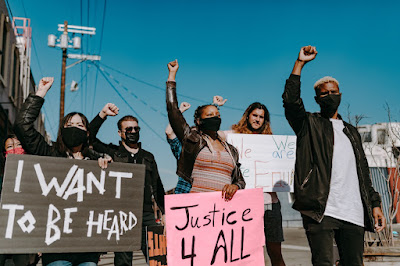The question of whether every nation should adopt democracy as its form of governance has long been debated by scholars, politicians, and global citizens alike. With both its champions and critics, the universal applicability of democratic governance is multifaceted.
Benefits of Universal Democracy
1. Human Rights and Individual Freedoms:
At the heart of many democratic societies lies the respect for human rights and individual freedoms. Democracy ensures that individuals have the right to voice their opinions, practice their faith, and live without the looming threat of arbitrary persecution.
2. Representation and Accountability:
One of democracy's cornerstones is the representation of its citizens. By casting their votes, people have a say in their leadership. This system of accountability ensures that leaders act responsibly, knowing they answer to their electorate.
3. Potential for Peace:
Democratic Peace Theory suggests that democracies are less inclined to wage wars against one another. The shared democratic values and preferred non-violent conflict resolutions make aggressive confrontations less likely.
4. Catalyst for Economic Growth:
With an emphasis on the rule of law, transparency, and accountable leadership, democratic societies often create environments conducive to economic innovation and sustained development.
Challenges of Universal Democracy
1. Respecting Cultural and Historical Differences:
Each country is a tapestry of its own history, culture, and values. A Western-style democratic model may not resonate everywhere, highlighting the need to respect regional nuances.
2. Transitioning Turbulence:
The shift from authoritarianism or other forms of governance to democracy isn't always smooth. Such transitions can inadvertently highlight religious or ethnic tensions, cause economic upheaval, or leave power vacuums that extremists are all too willing to fill.
3. The Shadow of Democratic Illiberalism:
Merely hosting elections does not automatically ensure a country upholds liberal values. Democratically elected leaders can sometimes suppress freedoms or oppress minorities, betraying the very principles they were elected.
4. Geopolitical Interference:
The promotion of democracy is occasionally tainted by ulterior motives. External powers might push for democratic transitions, not for the well-being of the local populace, but to further their own geopolitical agendas. Such interventions can sow seeds of long-lasting instability and foster resentment.
5. Alternative Governance Models:
Democracy, while effective for many, isn't the only governance model that promises order, growth, and a degree of rights protection. Some nations might find alternative models more aligned with their socio-cultural fabric.
Conclusion:
Democracy, with its undeniable merits, has ushered in positive changes in various parts of the globe. However, the proposition of a universal democratic model requires a nuanced approach, respecting each nation's unique character and challenges. As global conversations continue, the promotion of human rights and genuine respect for sovereignty should always remain paramount.
References:
OpenAI. (2023). ChatGPT (August 3 Version) [Large language model]. https://chat.openai.com

No comments:
Post a Comment